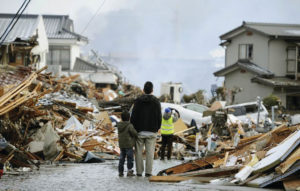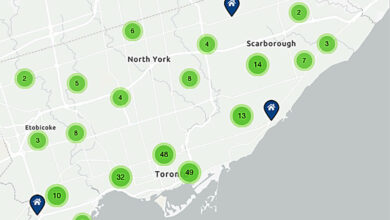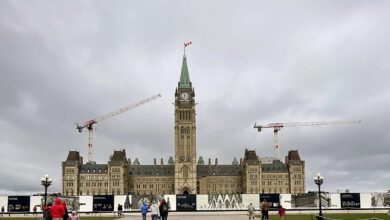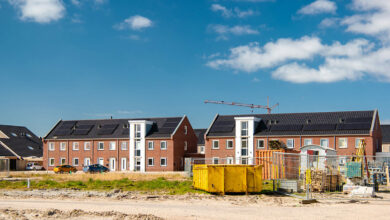“Natural disasters have increased over time, leaving more of a need for mental health support”
Clarinda Brandão
After natural disasters took place, like floods, wildfires, earthquakes, or tornados, the first concern is to rescue the victims and ensure the physical well-being of the survivors. Provide medical assistance to those in need and ensure that those who were not injured are relocated to a temporary shelter, where they will have access to food and basic care, and to provide conditions for them to re-establish and be able to somehow rebuild what they lost and resume life. However, for those people who have gone through extreme situations, in which they lost family, friends, their houses, life as it was, that it is not an easy task.
The psychological effects caused by unexpected natural disasters can leave significant or permanent marks on the survivors. The mental health of those who survive is not always seen or treated as a priority. Aware of this issue, many health experts have researched about this issue, the psychological effects on survivors of natural disasters, and some argue that with the increase of these events around the world, as we have seen this summer with the floods in Europe, wildfires punishing parts of Canada, among other current examples, it is necessary that the response given by the government to the communities affected is continuous also in mental health.

To clarify some points related to this subject and the importance of offering psychological support to these kind of victims, in this edition we interviewed Clarinda Brandão, Registered Relational Psychotherapist and Counsellor with the College of Registered Psychotherapist of Ontario. Clarinda is a graduate of the Toronto Institute of Relational Psychotherapy’s intense three-year relational psychotherapy program and a member of The Canadian Association for Psychodynamic Therapy (CAPT). She also works in trauma specialized cases and has a background training in trauma with the Traumatology Institute.
Milénio Stadium: After natural disasters took place, like floods, wildfires, hurricanes, and others, what is the best way to approach and deal with victims that lost, not only their houses, but sometimes also family members and friends?

Clarinda Brandão: It’s important to recognize that they are grieving. Some might feel overwhelmed, stressed, sad and angry. You can help by offering support: Support can be helping them find resources that can help mentally, physically or financially. Victims might have lost their community and need additional support that requires going outside their community. Helping them set up a GoFund Me account to help start to rebuild. More so, being gentle with them and offering your help and support.
MS: What are the most common psychological effects in victims affected by natural disasters?
CB: The loss of family/friend, long-distance immigration, and economic uncertainty due to a natural disaster can lead to an increase in mental health disorders. Those exposed to dramatic and disruptive natural disasters are more likely to develop psychiatric disorders such as substance abuse, major depression, anxiety, and psychosomatic illnesses which can present as an isolated disorder or as a part of post-traumatic stress disorder (PTSD).“Among survivors who are at increased risk for developing post-traumatic stress disorder, women are undoubtedly more vulnerable to suffer from depression, anxiety, post-traumatic stress and impaired well-being. Children presenting depressive symptoms also need substantial psychological support and counselling to cope with the event. Other group is of the rescue workers and the volunteers who are being exposed to mutilated bodies, mass destruction, and life-threatening situations and may become unseen victims” – Research by Guo YJ, Chen CH, Lu ML, Tan HK, Lee HW, Wang TN. Post-traumatic stress disorder among professional and non-professional rescuers involved in an earthquake in Taiwan. Psychiatry Res 2004; 127: 35-41. Though there are many resources for the physical aspect of healing, the resources for counselling for the victims is lacking.
MS: What is the average time to mentally recover from a natural disaster? Some psychologists are calling on the government to provide more mental health coverage to the public health services. Do you get the same feedback from your patients? Is it necessary to do more?
CB: There is no set time or length of time it can take for someone to be able to recover from a traumatic event. Many factors come into place when it comes to recovery. A low income-family would have less resources and financial means to be able to support and rebuild their home. This would impact and weigh more on their emotional wellbeing. More so, they would have a higher chance to have Post Traumatic Stress Disorder (PTSD) or other mental health disorders. There have been many changes in the world today and natural disasters have increased over time, leaving more of a need for mental health support. Not all clients have insurance, and those that do, have a limit that often doesn’t allow more than three-four sessions. It would be important to have additional support for counselling.
MS: Some experts say that mental health should be recognized as a critical aspect of healthcare that should be incorporated into all phases of disaster planning. What do you think of that?
CB: Mental health impacts the way we feel, think and deal with the world around us. Having more mental health services will also reduce the risk of chronic diseases brought on by stress, anxiety, or any form of substance abuse – initiated by traumatic events such as natural disasters. Mental health problems can have a wider effect on society, especially when they go untreated, or treatment is delayed.








Redes Sociais - Comentários